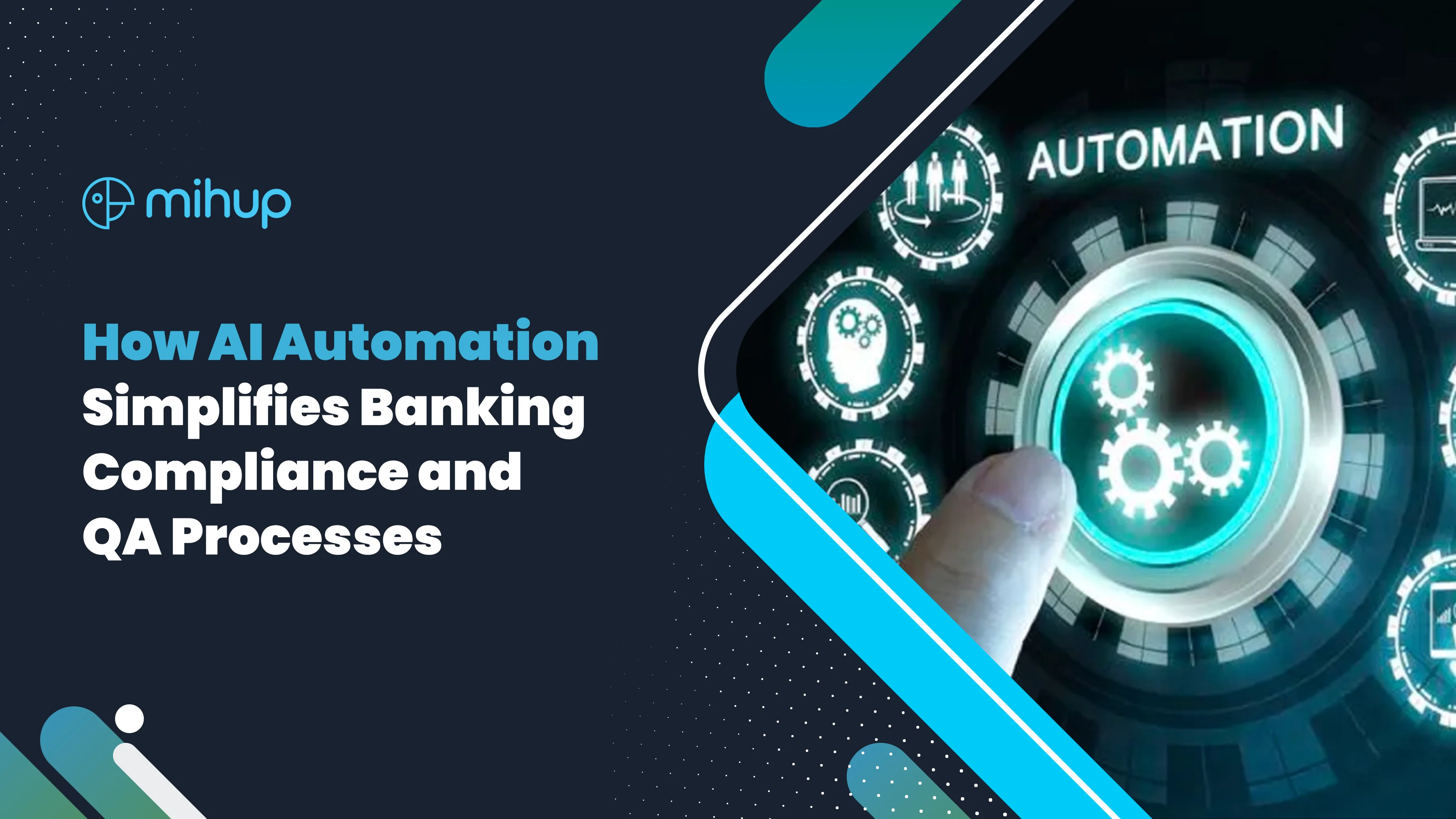“The only constant in life is change.” Isn’t it true? And to be consistent in this rapidly evolving world the advancement and adoption of technology is the change we must embrace. Ensuring compliance and maintaining quality assurance (QA) without leveraging technology can be challenging in the banking industry. Traditional methods often fall short under growing regulatory pressure and heightened customer expectations for seamless experiences. This is why AI is here—a change where automation steps in, transforming these processes with unmatched efficiency and accuracy. Wondering how?
This is a small glimpse of how:
- Enhanced Compliance: AI in compliance helps banks to minimize human errors and adhere to strict regulations.
- Streamlined QA: The optimized workflows for speed and accuracy save time and costs.
So, without further ado, let’s take a closer look at how AI automation is helping the BFSI industry tackle the challenges of traditional QA processes, the transformative benefits of AI automation, and how AI improves compliance in banking.
Real-time AI insights are reshaping banking operations in impactful ways.
Traditional Banking QA Processes and Challenges
Quality assurance in banking has always been a tedious process. From manual audits to repetitive testing of systems, QA in banking has been heavily human-dependent. While it worked in the earlier days, modern banking requires more precision and scalability.
Challenges Traditional QA in banking struggles with:
- Error-prone processes: Manual reviews often miss critical issues, leading to compliance risks.
- Time-consuming workflows: Traditional QA processes require extensive time, slowing down decision-making and implementation.
- Regulatory pressures: Adapting to ever-changing compliance standards is daunting without automation.
| Aspect | Traditional QA | AI Automation |
| Errors | Manual reviews often miss critical issues. | AI flags gaps in regulatory adherence that humans might have missed. |
| Time | Requires extensive time as it is slow and manual | Fast and automated |
| Compliance Regulation | Adapting to ever-changing compliance standards is daunting | Enhanced compliance accuracy with unmatched precision and efficiency |
| Cost-effectiveness | Higher operational costs | Reduced operational costs |
These limitations highlight the need for AI automation to fill the gaps and drive cost-efficiency and better outcomes.
Benefits of AI Automation in Banking QA Processes
Banking QA automation with AI is transforming Quality Assurance (QA) like never before with unmatched precision and speed. Traditional QA processes that rely heavily on manual reviews are limited in coverage and prone to human error. By leveraging technologies like Natural Language Processing (NLP) and Machine Learning (ML) AI automation covers 100% of interactions in real-time and identifies discrepancies or risks that manual reviews might miss.
With banking QA automation operational costs are reduced while increasing compliance accuracy. AI can process large volumes of data in an instant and generate actionable insights to address specific regulatory gaps. Additionally, it also means no more repetitive tasks for QA teams to focus on strategic improvements.
For instance, conversation intelligence platforms like Mihup.ai show how AI achieves operational efficiency and data security. By monitoring compliance and redacting sensitive data in real-time banks can keep trust and data private, and meet regulatory requirements and customer expectations.
How AI Automation Improves Compliance in Banking
Compliance requires strict adherence to complex rules. AI automation helps by introducing monitoring and decision-making. Intelligent algorithms and robotic Process Automation in banking can review transactions, identify anomalies, and flag potential compliance breaches in real-time.
AI is great at pattern recognition, which is a key to detecting fraud or money laundering attempts. For example, they can spot unusual transaction behavior or deviations from compliance protocols and take immediate action. AI also helps institutions comply with data protection laws, such as GDPR, by automating processes like Personally Identifiable Information (PII) redaction.
By using AI banks can streamline compliance and reduce risk and penalties for regulatory breaches. This fosters customer trust and enhances the institution’s reputation.
The transformative role of AI in risk management and compliance
Final Thoughts
AI automation is transforming banking compliance and QA processes, making them more efficient, reliable, and scalable. By addressing traditional inefficiencies and enhancing accuracy, AI enables banks to be competitive in a highly regulated world.
As intelligent automation in banking continues to be more intelligent its role in the future of banking will only get bigger. Banks that invest in AI now are not just optimizing today’s processes but building for tomorrow’s.





